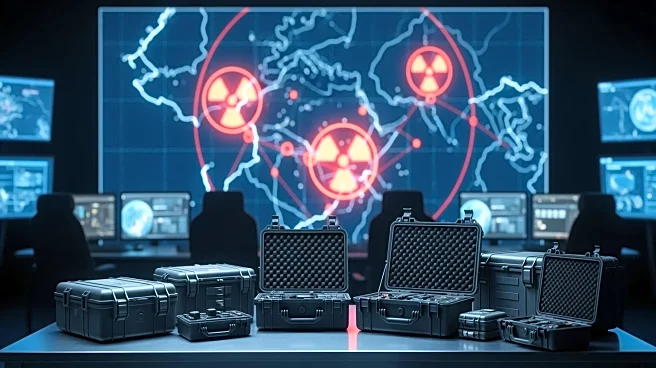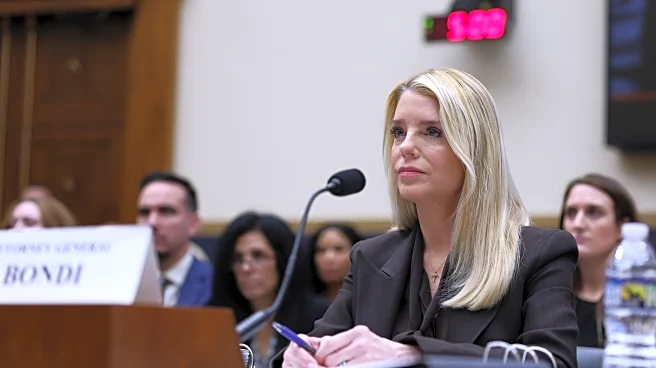What's Happening?
The Chinese government has expressed its anticipation for the Netherlands to take concrete actions to resolve a dispute involving Nexperia, a chipmaker based in the Netherlands but owned by the Chinese firm
Wingtech. This dispute has led to shortages of Nexperia's chips, which are crucial for car production. The Netherlands intervened in Nexperia's operations on September 30 to prevent the company from relocating production from Europe to China. In response, China blocked the export of Nexperia's finished products on October 4, causing significant shortages. The Chinese Commerce Ministry has agreed to a Dutch request to send representatives to Beijing for talks. The Netherlands' Economic Affairs Ministry has stated that constructive talks are ongoing, but details remain undisclosed.
Why It's Important?
The resolution of this dispute is critical for the automotive industry, which relies heavily on Nexperia's chips for vehicle electrical systems. The ongoing shortages could disrupt car production, affecting manufacturers and consumers alike. The situation also highlights the geopolitical tensions between China and European countries over technology and production control. A resolution could stabilize chip supplies, benefiting car manufacturers and potentially easing tensions between China and the Netherlands. However, prolonged disputes could lead to further disruptions in the automotive supply chain, impacting economic stakeholders globally.
What's Next?
The next steps involve continued negotiations between China and the Netherlands. Both parties are expected to work towards a resolution that allows for the resumption of chip exports and stabilizes production. The outcome of these talks could influence future trade relations and production strategies between China and European countries. Stakeholders in the automotive industry will be closely monitoring the situation, as the resolution could impact production schedules and supply chain strategies.










